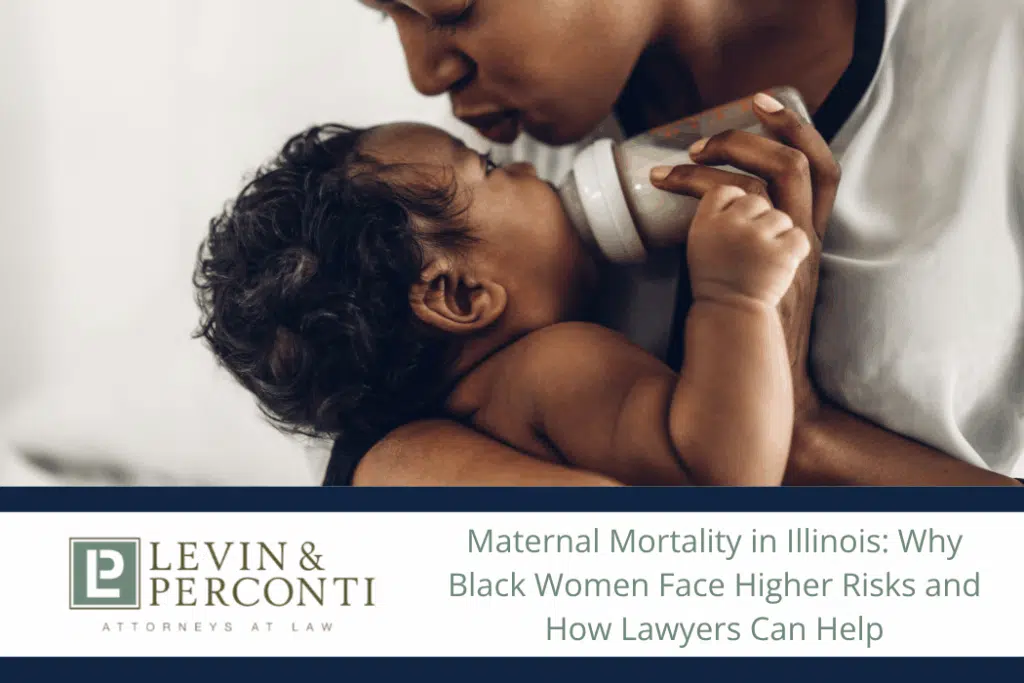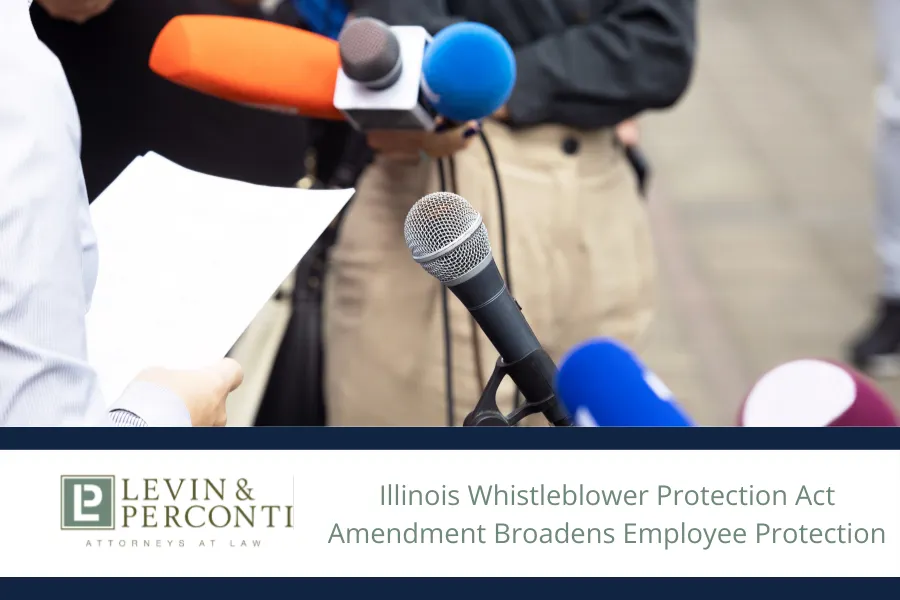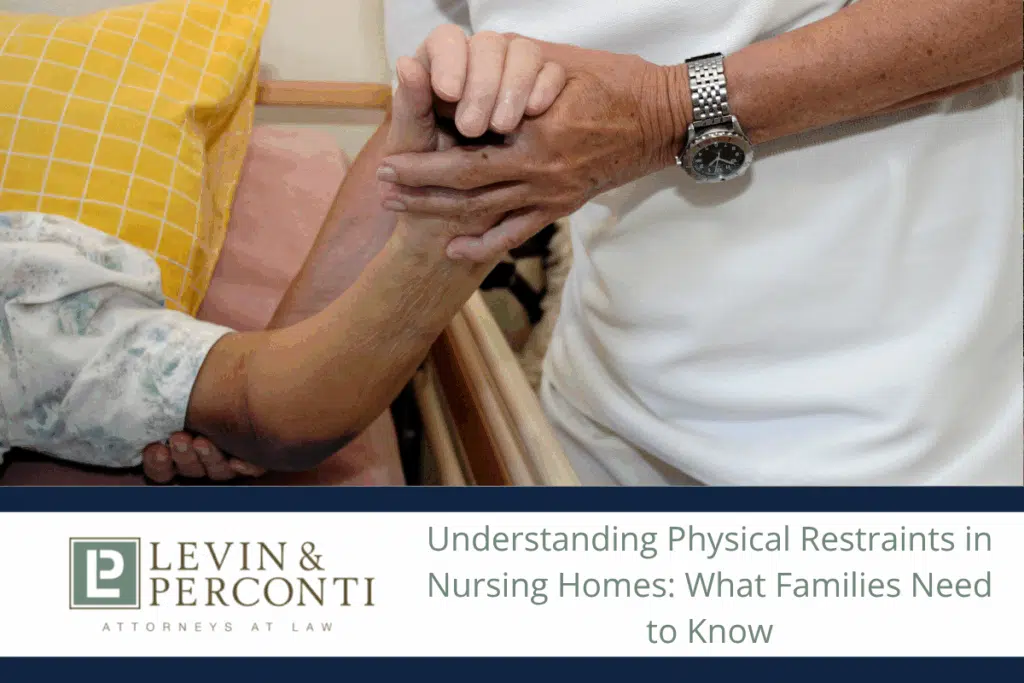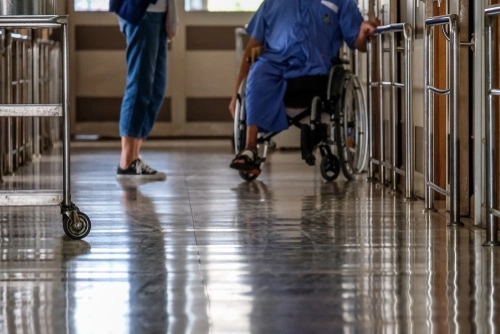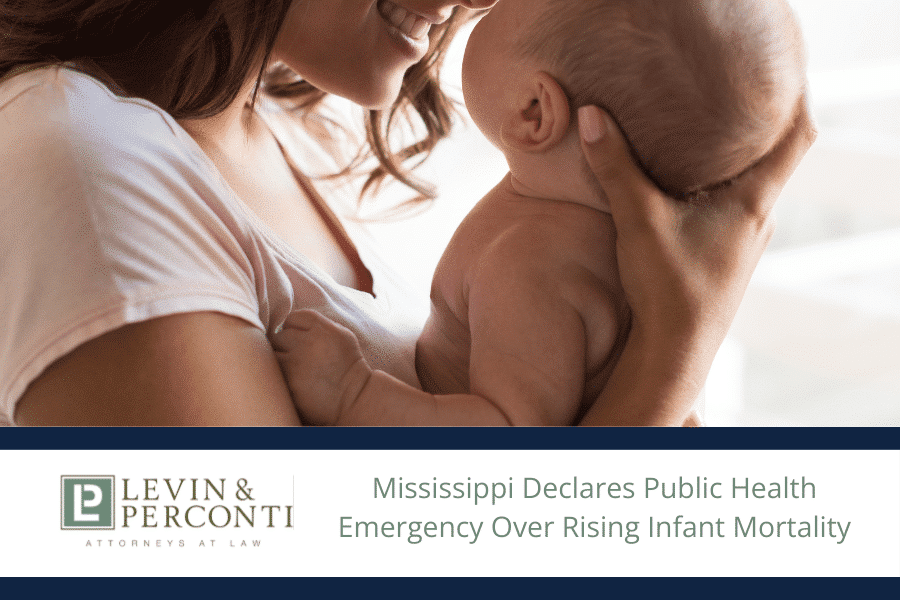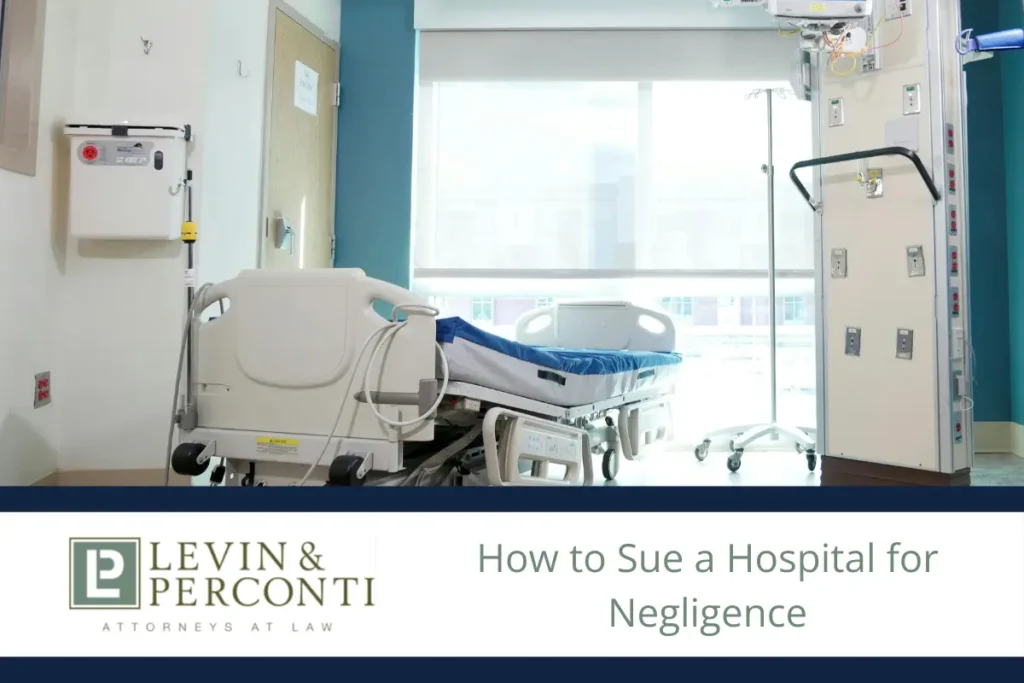Peoria Medical Malpractice Lawyers

When you or a loved one is hurt by a medical mistake, you want answers fast and steady support on the road to recovery. The Peoria medical malpractice lawyers at Levin & Perconti are here to listen, explain your options, and help you take the right next step.
Home | Chicago Medical Malpractice Lawyer | Peoria Medical Malpractice Lawyers
Quick Links
- Why Choose the Peoria Medical Malpractice Lawyers at Levin & Perconti?
- What Are the Most Common Types of Medical Malpractice Claims We Handle?
- How Common is Medical Malpractice in Peoria?
- Local Hospitals and Medical Centers Involved in Medical Malpractice and Patient-Safety Claims
- What Compensation Can You Recover in a Peoria Medical Malpractice Case?
- The Medical Malpractice Claims Process in Illinois
- Statute of Limitations for Medical Malpractice in Illinois
- How Can Levin & Perconti Help Victims of Medical Negligence?
- Frequently Asked Questions About Peoria Medical Malpractice Cases
- Contact Our Peoria Medical Malpractice Attorneys at Levin & Perconti
Central Illinois has a unique health care landscape, with patients from Peoria, Tazewell, and Woodford Counties often relying on regional providers and referral networks. That trust matters, so when care falls below accepted standards and causes harm, our firm steps in as experienced advocates for Peoria families, handling complex cases with care, clarity, and persistence.
If you have questions about what happened or what to do next, speak with a medical malpractice lawyer at Levin & Perconti. Call (312) 332-2872 for a free, confidential consultation.
Why Choose the Peoria Medical Malpractice Lawyers at Levin & Perconti?
For more than 30 years, our attorneys have focused on complex medical malpractice cases. Levin & Perconti has recovered over $1 billion in verdicts and settlements for injured clients, and we are nationally recognized for trial skill and client advocacy. Many of our cases come from peer referrals, including lawyers who trust our team with their most serious medical negligence matters.
Some of our notable medical malpractice lawsuit verdicts and settlements include:
- $40 million record verdict for family in a birth injury case
- $17.7 million settlement in a medical malpractice case
- $6.2 million verdict against the VA in a medical negligence case
- $1.1 million verdict in a medical malpractice lawsuit for a seriously injured patient
When deciding which Peoria medical malpractice lawyer to trust, experience, resources, and proven outcomes matter.



What Are the Most Common Types of Medical Malpractice Claims We Handle?
Medical negligence can happen in many forms and settings, often leading to serious injury or death for patients who trusted their healthcare providers. At Levin & Perconti, we handle a wide range of medical malpractice cases where healthcare providers fail to meet the expected standard of care, causing harm. We represent clients in various medical malpractice scenarios across Illinois.
Below are some of the most common types of medical malpractice claims we handle:
 Anesthesiologist Error
Anesthesiologist Error
Errors made during the administration of anesthesia can have severe consequences. These mistakes may include miscalculating the dosage of anesthesia, making intubation errors, or improperly monitoring a patient’s vital signs. Such errors can potentially lead to respiratory distress, brain damage, allergic reactions, or even death.
 Misdiagnosis
Misdiagnosis
This occurs when a doctor incorrectly identifies a patient’s medical condition. It can result from inadequate medical histories, ignoring symptoms of serious conditions, or failing to order necessary tests. Misdiagnosis can lead to a lack of treatment, inappropriate or unnecessary treatments, and delayed intervention, potentially causing severe health complications. An estimated 12 million Americans experience a diagnostic error in primary care each year, and clinical misjudgment accounts for a significant percentage of these errors.
 Cancer Misdiagnosis
Cancer Misdiagnosis
Cancer misdiagnosis is a specific and often devastating type of misdiagnosis. It represents a large portion of wrong diagnosis claims. Cases involve failure to properly read tests like Pap smears, leading to missed cervical cancer, or failure to biopsy tumors, delaying diagnosis and treatment.
 Heart Attack Misdiagnosis
Heart Attack Misdiagnosis
Diagnosing heart attacks can be complex due to varied symptoms. Misdiagnosis can happen if symptoms are misinterpreted as less severe conditions like indigestion or anxiety, or if necessary tests like EKGs or blood tests are not conducted or are misread. Overlooking atypical symptoms in certain patient populations or failing to recognize silent heart attacks also contributes to these errors.
 Delayed Diagnosis
Delayed Diagnosis
This involves a medical professional taking too long to identify a patient’s medical condition. The excessive delay in diagnosis can result in postponed treatment, reducing treatment options, and potentially leading to more severe health complications for the patient. Examples include delays in diagnosing conditions like lung cancer or postpartum issues based on ignored symptoms or test results.
 Failure to Diagnose
Failure to Diagnose
A failure to diagnose occurs when a healthcare provider overlooks or misses a medical condition entirely. This lack of diagnosis means the patient does not receive the necessary treatment, which can have severe or fatal consequences. This can be caused by incomplete patient histories, neglecting symptoms, or failing to order appropriate diagnostic tests.
 Lack of Informed Consent
Lack of Informed Consent
Healthcare providers are required to adequately inform patients about the potential benefits, risks, and alternatives of a medical procedure or treatment before proceeding. A lack of informed consent claim arises when a provider fails in this duty, and the patient suffers harm as a result of a procedure they did not fully understand or agree to.
 Birth Injuries
Birth Injuries
These cases involve harm sustained by either the mother or the child during pregnancy, labor, delivery, or shortly after birth due to trauma or medical errors. Birth injuries can result from various mistakes, such as the improper use of birthing tools, failure to detect fetal distress, or delays in performing a necessary C-section. Common outcomes include brain injuries like cerebral palsy or brachial plexus injuries.
 Healthcare Provider Errors
Healthcare Provider Errors
This broad category encompasses mistakes made by any medical professional, including doctors, nurses, technicians, and hospital staff, who fail to meet the standard of care. These errors can manifest in numerous ways, such as misdiagnoses, incorrect medication dosages, surgical mistakes, or failures in communication or charting. Overworked staff, inadequate training, or poor hospital protocols can contribute to these errors.
 Misread X–rays, Slides, and Ultrasounds
Misread X–rays, Slides, and Ultrasounds
Errors in interpreting diagnostic imaging and test results are a significant cause of medical malpractice. A radiologist misreading an X-ray, a pathologist misinterpreting lab slides, or a technician misreading an ultrasound can lead to a missed or incorrect diagnosis of serious conditions like cancer or tumors, delaying critical treatment.
 Medical Device Error
Medical Device Error
These claims involve injuries or death caused by defective medical devices. Defects can stem from the device’s design, manufacturing process, or marketing information. When commonly used devices like pacemakers or hip replacements malfunction, patients can suffer severe complications, leading to product liability claims against manufacturers or hospitals.
 HMO Misconduct
HMO Misconduct
Healthcare Management Organizations (HMOs) or their affiliated doctors can be held liable for misconduct that leads to patient harm. This can include instances where an HMO doctor fails to diagnose a condition or disregards patient complaints, resulting in delayed or improper care and subsequent injury or death.
 Medication & Pharmaceutical Errors
Medication & Pharmaceutical Errors
These preventable errors occur when healthcare professionals fail to follow best practices in prescribing, dispensing, or administering medications. Mistakes can include giving the wrong medication or dosage, administering it incorrectly, or overlooking dangerous drug interactions. Such errors can cause severe harm, including hospitalization, permanent injury, or death.
 Spinal Cord Injuries
Spinal Cord Injuries
Medical negligence can result in severe and permanent spinal cord injuries. Cases may involve surgeons causing damage during procedures, or healthcare providers failing to recognize worsening neurological symptoms and delaying necessary intervention to relieve spinal cord compression. These injuries often lead to permanent disability or paralysis.
 Nursing Home Abuse & Neglect
Nursing Home Abuse & Neglect
Residents in nursing homes can suffer harm due to the negligence or intentional acts of staff. This can include medication mismanagement, falls, neglect leading to infections like MRSA, or other failures to provide appropriate care based on the standard of care for vulnerable residents.
 Surgical Errors
Surgical Errors
Mistakes made during surgery are preventable errors that can cause significant patient injury or death. These errors range from operating on the wrong site or patient to damaging nerves or organs, performing the incorrect procedure, or leaving foreign objects inside the body cavity.
 Staph Infection
Staph Infection
Patients can acquire serious infections, such as Staph infections (like MRSA), while in a hospital or healthcare facility. If these infections are contracted or worsen due to negligent care, such as poor sanitation or failure to properly treat an existing infection, the hospital or staff may be liable for the resulting complications and harm.
 OB-GYN Error
OB-GYN Error
Obstetrics and Gynecology (OB-GYN) malpractice involves negligence in care related to women’s health, including pregnancy, labor, delivery, and gynecological procedures. Errors can range from mismanaging labor and delivery, leading to birth injuries, to failing to diagnose critical conditions during pregnancy or performing unnecessary surgical procedures.
How Common is Medical Malpractice in Peoria?
Illinois medical malpractice statistics show that medical malpractice is a real issue for patients in Peoria. Illinois ranks fifth in the nation for total malpractice payments, with $318.86 million paid in 2023 to resolve claims. From January 1, 2020, to September 30, 2024, Illinois providers were named in 1,801 medical malpractice payment reports, highlighting harms that can occur in the institutions we trust.
Local Hospitals and Medical Centers Involved in Medical Malpractice and Patient-Safety Claims
Below are medical centers in or around Peoria that have recently been named in lawsuits or news coverage related to patient safety.
- Carle Health Methodist Hospital: Wrongful death in 2023, in which the family alleged negligent care and inadequate steps on behalf of the facility to prevent the patient from leaving.
- OSF Healthcare Saint Francis Medical Center: Paid $41 million in a malpractice case involving Coumadin management and a subsequent stroke.
These examples provide local context and serve as a reminder that when care falls short, accountability matters. Hospitals and insurers defend these cases vigorously, and facts are contested. Getting a medical malpractice attorney to take your case can help ease the stress of filing a claim and protect your right to compensation.
What Compensation Can You Recover in a Peoria Medical Malpractice Case?
Victims of medical negligence may be entitled to several types of compensation, including recovering economic and non-economic damages. The exact value of a case depends on the facts, severity of the injury, long-term impact, and available evidence. In Illinois, there are no caps on damages in medical malpractice cases, but outcomes still rely on the specifics of the case.
Economic damages account for financial losses, including past and future medical bills, rehabilitation and in-home care, reduced earning capacity, and, in wrongful death cases, lost financial support. Non-economic damages account for human losses, such as pain and suffering, loss of enjoyment of life, and emotional distress.
Average Medical Malpractice Settlement Amounts
In 2024, the average settlement for a medical malpractice lawsuit in Illinois was $646,921. While some cases resolve for tens of thousands, others can reach eight figures. Results vary based on the type of error, extent of permanent harm, evidence, available insurance coverage, and expert testimony.
The Medical Malpractice Claims Process in Illinois
Achieving a successful medical malpractice verdict or settlement takes careful groundwork and time, but our attorneys will guide you through every step:
- Consultation and case evaluation: You’ll speak with a Peoria medical malpractice lawyer about what happened and your injuries. We review your timeline and available records to assess whether the facts suggest substandard care or negligence and what the next steps could look like.
- Investigation and expert opinions: Building a strong case begins with gathering evidence of medical negligence and consulting with medical experts to demonstrate that the health care provider’s negligence caused you harm.
- Filing the lawsuit: Your attorney files a complaint that outlines the allegations against the responsible providers and facilities. This preserves your rights and formally starts the case within the applicable deadlines.
- Discovery and negotiations: Both sides exchange documents, answer written questions, and take depositions of witnesses and experts. Throughout discovery, your lawyer negotiates for a fair settlement while preparing the case as if it will go to trial.
- Settlement or trial: Many cases resolve through settlement, but if the offer doesn’t reflect the full extent of your losses, your case proceeds to trial.
Statute of Limitations for Medical Malpractice in Illinois
In most cases, the Illinois statute of limitations for medical malpractice is two years from the time you discover medical negligence caused your injury. This discovery rule can be complicated, and deadlines may be extended or shortened in certain situations—including matters involving minors or government-owned facilities—so it’s best to speak with an attorney as soon as possible.
How Can Levin & Perconti Help Victims of Medical Negligence?
Navigating the aftermath of a medical malpractice incident can feel overwhelming and confusing, but our talented team at Levin & Perconti is here to ease that burden and protect your right to compensation. Our priority is to guide you through this challenging time with knowledge built from experience and compassionate support.
Our nationally recognized medical malpractice lawyers in Peoria provide a comprehensive review of your case, acquiring medical records and evidence, connecting with witnesses, taking depositions, and helping you understand the standards of care and filing deadlines surrounding your case.
Frequently Asked Questions About Peoria Medical Malpractice Cases
How much does it cost to hire a medical malpractice lawyer in Peoria?
Hiring a medical malpractice lawyer in Peoria typically involves a contingency fee, meaning you don’t pay attorney’s fees until we win.
How long do medical malpractice cases take in Illinois?
How long a medical malpractice lawsuit takes varies depending on your situation. Some matters resolve in a year or two, while other complex cases can take longer.
What if multiple doctors were involved in my care?
You can pursue a claim against any provider whose substandard care caused harm.
Can I sue a hospital for a doctor’s mistake?
In some situations, you can sue a hospital for negligence if hospital policies, staffing, or employed clinicians contributed to the error.
What if I signed a consent form before treatment?
A consent form acknowledges known risks but does not excuse surgical errors, misdiagnosis, or negligence. If care fell below the acceptable standards of care and caused injury, you may still have a claim.
How do I know if I have a valid medical malpractice case?
If you or a loved one were injured due to a medical professional’s or health care facility’s negligence, you likely have a medical malpractice case.
Legally Reviewed by

Bonamarte, IV
Read Bio
Since 2005, Michael Bonamarte IV has been a passionate advocate for victims of negligent conduct, corporate malfeasance, and medical malpractice. He has won numerous awards and recognitions, including Best Lawyers in America and Super Lawyers’ Rising Star. He has presented for the American Association for Justice, the AAJ Nursing Home Litigation Group, the John Marshall Law School, and numerous other legal associations. He regularly lectures at Chicago-area aging organizations about nursing home abuse. His writings have been published by the American Bar Association, the Chicago Daily Bulletin, and numerous other prestigious publications.
Related Pages
Notable Results
for failure to properly read pap smears, resulting in the misdiagnosis of cervical cancer and eventual death of a 35-year-old mother of three children.
for failing to biopsy a known breast tumor, resulting in the delay of diagnosis of breast cancer, causing death.
for failing to perform an annual pelvic exam, which resulted in the untimely diagnosis of ovarian cancer.
Contact Our Peoria Medical Malpractice Attorneys at Levin & Perconti
You don’t have to navigate this alone. Levin & Perconti offers a free, confidential consultation, and our contingency fee policy means you don’t owe anything unless we win.
If you or a loved one has been injured due to medical negligence in Peoria or Central Illinois, contact Levin & Perconti for a free consultation. Our experienced medical malpractice attorneys are ready to fight for your rights. Call (312) 332-2872 or reach us through our online contact form.

Related Blogs
